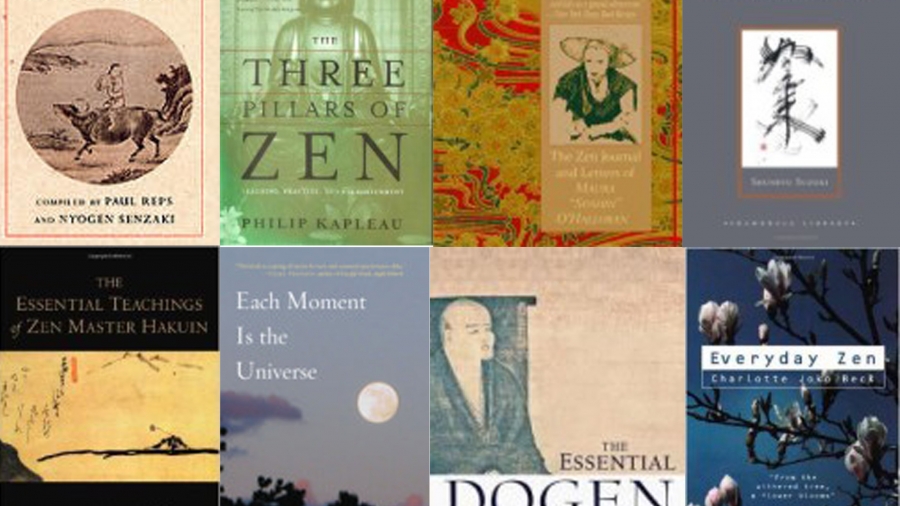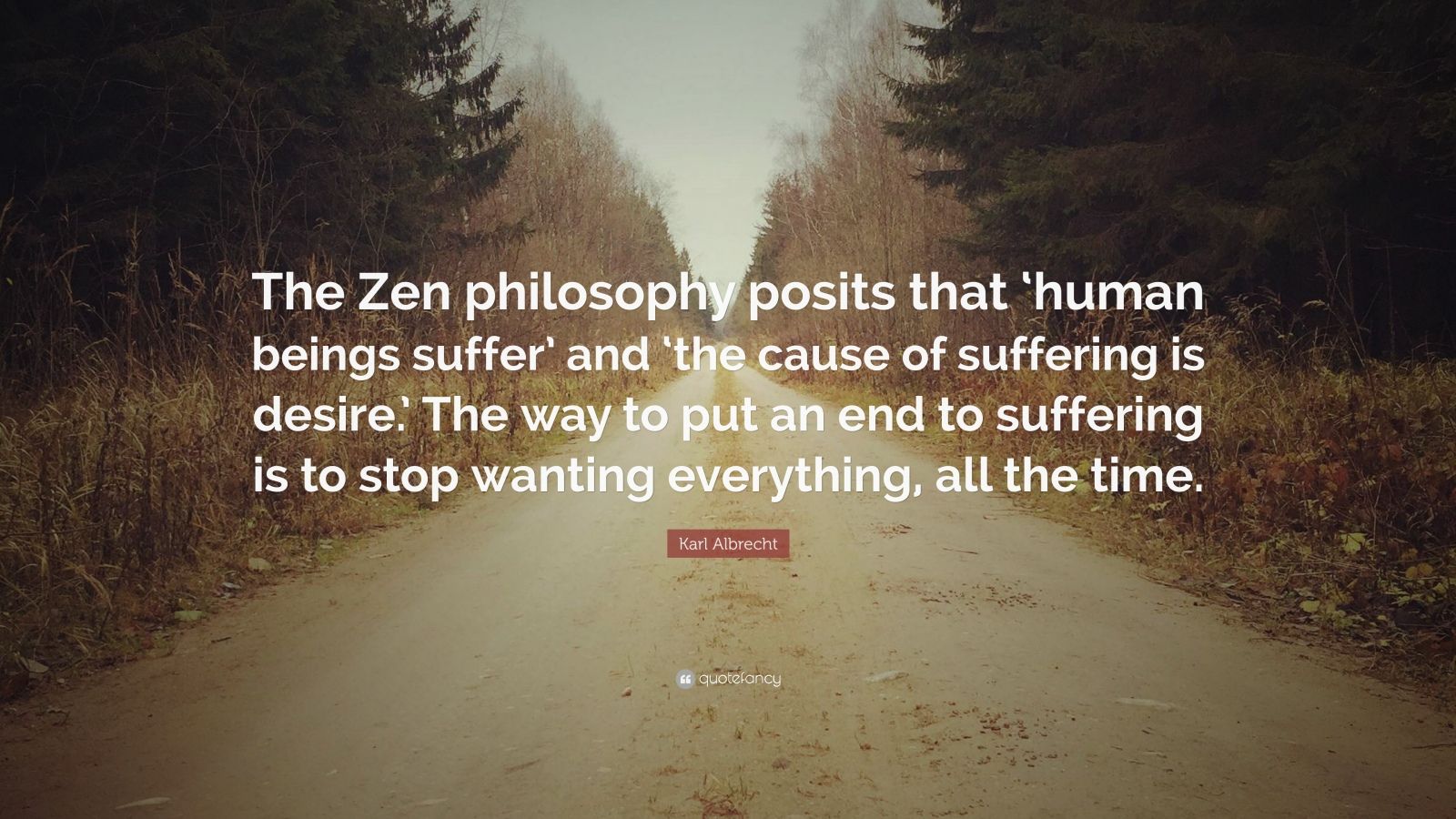Zen: Beginner's Guide: Happy, Peaceful and Focused Lifestyle for Everyone (Buddhism, Meditation, Mindfulness, Success) (Down-to-Earth Spirituality for Everyday People). May 24, 2019 The scholarly answer to that question is that Zen is a school of Mahayana Buddhism that emerged in China about 15 centuries ago. In China, it is called Ch'an Buddhism. Ch'an is the Chinese rendering of the Sanskrit word dhyana, which refers to a mind absorbed in meditation. Sep 27, 2017 Veneration of one’s teachers is an integral component to Zen philosophy. Way of Zen is similar to the concept of Dharma, meaning a path to follow. EXercises such as kinhin (walking meditation) or samu (mindful work) are practiced to develop mind and body in Zen balance. “I'm simply saying that there is a way to be sane. I'm saying that you can get rid of all this insanity created by the past in you. Just by being a simple witness of your thought processes. It is simply sitting silently, witnessing the thoughts, passing before you.
Maseo Abe: Self-Awakening and Faith — Zen and Christianity Abe looks at some of the differences between Zen and Christianity pointing out the contrasts between God and Nothingness, faith and enlightenment and salvation and self-awakening. from Christianity Through Non-Christian Eyes (Faith Meets Faith Series) Orbis Books, 1990
Christoph Anderl: Zen Rhetoric: An IntroductionWhat Kind of Rhetoric…and Why? Anderl looks at how words and rhetorical structures are used in Zen Buddhist texts to both illuminate as well as promote doctrinal viewpoints. Itools free download mac. Although Zen texts frequently stress 'their incapability to express the ultimate truth', Anderl explores some of the linguistic devices used to spread the message of Zen teachings. from: ' target='_blank'>Zen Buddhist Rhetoric in China, Korea, and Japan
Yoko Arisaka: Beyond 'East and West': Nishida's Universalism and Postcolonial Critique Arisaka looks at Kitaro Nishida's philosophical 'universalism' which Nishida's defenders claim is incompatible with imperialist nationalism and finds that 'Philosophical universalism is not in itself anti-imperialist, but can in fact contribute to imperialist ideology.' from The Review of Politics 59:3, Summer 97, pp. 541-560
Michael Berman: Time and Emptiness in the Chao-Lun Berman looks at the Madhyamika Buddhist-Taoist Seng-chao's Book of Chao and discusses the use of language and how Seng-chao, through sunyata and marga, understood time. from Journal of Chinese Philosophy Vol 24, 1997 pp43-58
Jørn Borup: From Elite Zen to Popular Zen: Readings of Text and Practice in Japan and the West This article is a precursor to the one below. The article addresses the theme of 'popular' Zen in both Japan and the West. Borup concludes with 'reflections on the relation between one particular kind of popular culture, “Zen spirituality,” and its apparent lack of parallel in Japan.
Easternization of the East? Zen and Spirituality as Distinct Cultural Narratives in Japan This article aims to investigate how and to what extent 'Zen' and 'spirituality' are related as narratives and religious practices in a contemporary Japanese context. While there are overlaps, it is argued that the two domains are separate and that such a division is based on general differences in culturally constrained narratives (Western/Japanese, Zen/spirituality). Besides focusing on a concrete Japanese context, the article also contributes to research on global and transnational (Zen) Buddhism as well as to the field of comparative spirituality. from Journal of Global Buddhism Vol. 16 (2015): 70-93
Johannes Bronkhorst : Did the Buddha Believe in Karma and Rebirth? Bronkhorst investigages the early sayings of the Buddha to try to determine the Tathagata's position on these two key concepts. from the Journal of International Association of Buddhist Studies, Volume 21 • Number 1 • 1998
Chung-Ying Cheng: On Zen (Ch'an) Language and Zen Paradoxes “this essay plans to inquire into the logical and semantical significances of the dialogic exchanges (kung-an, koan) in Zen language and discourse as well as to clarify their methodological and ontological basis…In what logically intelligible way does a puzzle or a paradox as generated in a dialogic exchange derive its extraordinary meaningfulness as a tool for reaching or revealing the ultimate truth?…How is the paradoxicality or puzzlement of such a puzzle or paradox to be rationally explained and logically dissolved?” from Journal of Chinese Philosophy
Onto-Epistemology of Sudden Enlightenment in Chan Buddhism: Cheng explores the epistemology of enlightenment and the relationships between enlightenment and knowledge. from Chung-Hwa Buddhist Journal, May 2000


Sungtaeik Cho: The Rationalist Tendency in Modern Buddhist Scholarship: A Revaluation The author argues that Buddhism cannot be understood by rational Western philosophical methods but reminds the reader that Buddhist thought is based on knowledge acquired through meditation. A short essay, but worthy. Originally published: Philosophy East and West Vol.52 No. 4 Oct. 2002
Michael Clasquin: Real Buddhas Don't Laugh: Attitudes towards Humour and Laughter in Ancient India and China Clasquin tries to answer why Zen uses humour when the Vinaya and other codes of conduct expressly forbid laughter. He investigates early Hindu humour and uses modern philosophy to discover the types of humour in Zen. from Social Identities, Volume 7, Number 1, 2001
Edward Conze: In this two-part series of essays, Conze looks at similarities and differences between Western philosophy and Buddhist thought. Conze says, 'my interpretation of Buddhism is the conviction .. that it is essentially a doctrine of salvation, and that all its philosophical statements are subordinate to its soteriological purpose.' In Buddhist Philosophy and It's European Parallels, Conze finds 'only three currents of European philosophy which can significantly be compared with Buddhism, i.e., [1] the Greek Skeptics, [2] the wisdom-seeking mystics, and [3] the monists and dialecticians.' In the second part, Spurious Parallels to Buddhist Philosophy, Conze points out 'When we compare Buddhist and European thought, it happens quite often that the formulations agree, whereas considerations of their context, of the motives behind them, and of the conclusions drawn from them suggest wide discrepancies. Verbal coincidences frequently mask fundamental divergences in the concepts underlying them.' from Philosophy East and West 13, no.1, January 1963.
Asian Philosophy Vol. 17, No. 3, November 2007, pp. 283–292
Henry Cruise: Early Buddhism: some recent misconceptions'The main point is that there is a case to be made that Early Buddhism was empirical, in the way that modern science might be said to be empirical. but not in the way in which 'the Lord Buddha finds himself conscripted as a supporter of the British Philosophical tradition of empiricism'.' from Philosophy East and West, Volume 33, no.2 April, 1983
Robert Ellis : How Buddhist Was Plato? Plato and his teacher Socrates laid the foundation for Western philosophy. Ellis explores Platonic thought in a Buddhist light: 'Plato does seem to have betrayed the most basic principles of his teacher, but the tendencies, which gave rise to that betrayal, are already present in Socrates' view as it is reported in the Socratic dialogues. From a Buddhist viewpoint the weaknesses can be clearly seen as due to a failure to fully understand a non-dualist approach, which could have given greater consistency to the flashes of insight that, we find in both Socrates and Plato.'
Zen Philosophy Zen Practice Pdf
Ronald Epstein: The Transformation Of Consciousness Into Wisdom In The Chinese Consciousness-Only School According To The Cheng Wei-Shi Lun Epstein looks at the consciousness-only school of Buddhism and briefly delineates the stages of transformation, and how after transformation is complete and Buddhahood has been realized, tries to indicate how the immanent aspect of Buddhahood utilizes wisdom to function in the world.
Bernard Faure: Bodhidharma as Textual and Religious Paradigm Faure uses structural criticism to analyse Bodhidharma's life as a literary piece belonging to the genre of hagiography, rejecting obsolete concepts of historical individuality and all methodological extremes to reach a new, limited understanding of 'Bodhidharma's coming from the West'.
Asaf Federman: Literal Means and Hidden Meanings: a New Analysis of Skillful Means Federman explores what is meant by 'skillful means'. 'Skillful means is therefore not a mere pedagogical device of matching the right simile to the right person. It is also not exactly the idea that the teachings should be abandoned after a person reaches a goal. It is rather a sophisticated explanatory tool that enables a new religious movement to claim that what has been widely accepted as true is actually not true, and that truth is, and has always been, something else. ' from
Zen Philosophy Origin
Philosophy East & West Volume 59, Number 2 April 2009 125-141Toby Avard Foshay: Denegation, Nonduality and Language in Derrida and Dogen Buddhism and post-modernism for those who love this kind of thing. from: Philosophy East and West.
Zen Philosophy Pdf
